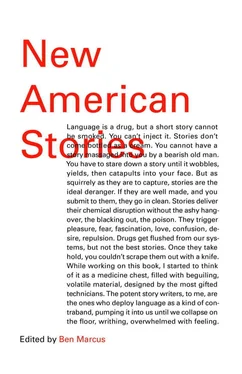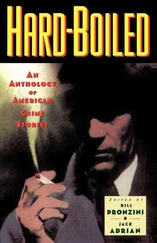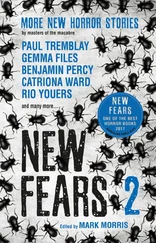“Boyd,” I called. The coachman checked his bundle.
“Here,” he said, passing down a lovely vanilla-colored envelope. I reached to receive it but Errol snatched it from the driver. His hands trembled as his large fingers carefully negotiated the letter from its paper case. He was smiling. It had been a long time since I had seen him smile. Then, nearly the instant he unfolded the paper, he dropped it to the ground, where our two pairs of boots faced each other. I retrieved the letter as Errol walked away from me. My dear sons, it began, as I knew it would.
From there I was back in the realm of the unafflicted, where we cannot know what will come next. I expected Errol to embark on another binge, and I braced myself for it. But he set out in the direction of the river instead and I followed, losing myself in reading our mother’s letter as I went. I had never been so delighted to hear of my sisters’ schoolwork or the comings and goings of livestock. I read and re-read it all the way back to camp. December had crisped the air pleasantly, and the day was beautiful.
That afternoon, Errol resumed his post at the rocker. His working did not soothe me. The Chinamen gave him a wide berth. Come sundown, the hour when we usually retired, Errol stayed at the rocker. I dismissed the tongs and stayed with him, clumsily shoveling and rinsing. I thought hard work might cleanse him of heartbreak and was happy to keep him in ore, if that would do it. But soon it grew so dark that there was no chance that Errol could determine the character of the sediment coming down the sluice. And anyway he was looking not at the sluice but at the stars.
Eventually I stabbed the shovel into the rock and said, “I think I’ll heat some beans. Care for some?”
“No. I don’t think so,” said Errol, taking up the shovel. I fixed dinner and set some on his stump for him. As I ate I watched his futile efforts at the shovel, then the bucket, then the rocker, then the shovel again. He stayed at the shovel then, with his breath puffing into the cold like the stack of a steamboat. I went to bed with him still at it, figuring he would exhaust his frustrations and retire in his own time. I fell asleep to the skeletal scrape of iron against bedrock.
And in the morning I woke to it.
I emerged from our tent but Errol was nowhere in sight. I could hear his work but not see him. There was the cradle, unmanned. In the place where I had last seen him was a large mound of dirt. Beyond it, a pit. I approached. Down at the bottom of the pit was my brother, shoveling earth as steadily as he had been six hours before. The hole was likely five feet deep and vaguely rectangular. The shape of it alone frightened me, but I composed myself and adopted an air of nonchalance.
“Good morning, Errol,” I called. “Would you care for some breakfast?” I peered again into the hole. The sun was not yet very high and so Errol was mostly in shadow. His head alone was illuminated, and it seemed to hover above the darkness of the pit, disembodied. His hat was gone. I later found it buried in the pile.
“I think I’ll make some flapjacks,” I repeated. “Would you care to take a break for some flapjacks, Errol?” His answer was a shovelful of dark sediment, flashing in the sunlight. It seemed there was nothing to do but what I’d always done. I fixed breakfast, and when I was through I tossed Errol a warm flapjack, only to have it ejected in yet another shovel load.
My brother remained in his mine all morning. The Chinamen arrived ready to work, but I dismissed them. I stood near the lip of the pit, saying his name again and again and again, until his name went meaningless as a tong word. He never acknowledged me, only dug.
I offered him water. He dug.
I read him our sweet mother’s letter. He dug.
Noon came. The hole was not so deep that Errol could not climb out — not yet — but it was deep enough now that even when he stood straight, my brother’s frame was completely subterranean. I might have lain on my stomach and reached down to touch the top of his head, but I did not. He dug. The ceaseless sound of his shovel on the rock penetrated my every thought.
I flattered him. He dug.
I taunted him. He dug.
I bribed him. He dug.
I told him we could go to San Francisco and nap in feather beds. He dug.
I told him, finally, that we could return to Marjorie. He dug.
By dusk the hole had gone narrower. It was now over seven feet deep. I sat near the lip, dejected and alone. I had no one but Errol here and I suddenly felt it was very important to touch him. I lay my belly against the cool earth, inched my way to the edge of the hole and extended my arm down into it. I called softly for Errol to pause in his task for just one minute, to reach up above his head and stretch his fingers toward mine. So I could test his temperature, I said. He would not turn his face to me.
Night fell, and with it came fury. I cursed him. I stood on the edge of the hole and shouted at him. Men came down to have a look at the commotion, and I ran them off. I shrieked into the pit. I said things I had never said to anyone. Things I have not said since.
I must have slept that night, because I woke before light, shivering with frost, atop the mound he’d made. The scraping went on. The sides of the chasm sparkled with frost, too, and this brought me a strategy. I filled the bucket at the river, returned to the hole, and began trickling water down into it. “Errol,” I called. “I think the river’s coming in. Hear that? That’s the river, old boy.” He said nothing but his scraping paused, I thought.
“Don’t worry, Errol. I’ll get you out.” I tied one end of a rope to a tree. I refilled the bucket and poured it in. Then I flung the other end of the rope into the hole and called, “Grab hold, Errol! I’ll pull you up!”
The digging persisted, but now there was a watery sound beneath the sound of the shovel.
That night I sat jiggling the rope, touching the notch my brother had left in my collarbone, saying I was sorry and could he please please please please grab hold.
When morning came I gathered the heaviest rocks I could carry and assembled them in a pile near the lip. I was desperate. I intended to brain my brother, climb down the rope, tie it around him, climb up the rope, and then pull him up. Giddy images of his wilted body dangling from the rope passed through my mind at the moment I noticed a strange sound. It was silence. The absence of shovel on bedrock.
I approached the hole, bracing myself for the sight of my brother’s dead body at the bottom. Instead, he sat quite alive with his back against the earth wall, as if resting after a morning’s work and not three feverish days spent burying himself alive. It was noon and the sun was beaming directly into the hole. I could see his scalp burned pink where his hair had gathered in clumps, and his blistered, bloody hands. He had removed his boots and one was half submerged in the water I’d poured upon him. The rope was well above where he sat now, curled like an animal in a water-logged den.
Then, he began to sing. It was the first I’d heard his voice since he declined the now-crusted beans still awaiting him on the stump. The song was a popular one, and he sang it with an unsettling bounce:
Hangtown gals are plump and rosy,
Hair in ringlets, fists of posy,
Painted cheeks and jossy bonnets—
Touch ’em and they’ll sting like hornets!
“That’s a fine tune,” I said when he was done. I don’t know why I said it, except that it was.
Errol looked up at me, finally, squinting against the light. His face had gone gaunt and grimed and socket hollow. He did not look like himself. He said, “There’s a good pile coming, Abigail.”
Читать дальше










![Женя Джентбаев - neo futura [stories]](/books/692472/zhenya-dzhentbaev-neo-futura-stories-thumb.webp)

